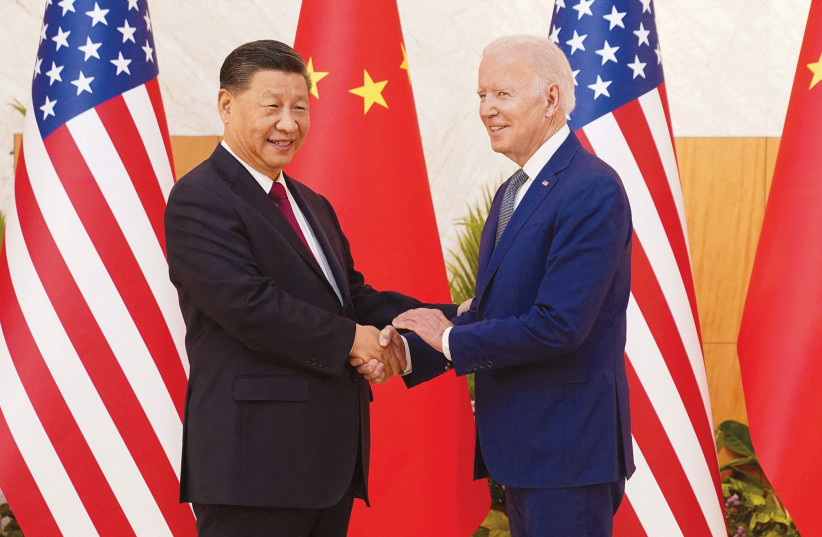The tightrope Israel has been maneuvering between its desire for cooperation with China and its commitment to maintaining good relations with the United States has recently tightened even further.
For several years now, the US has regarded China as the most significant challenge to its foreign and security policy and has adopted a policy that complicates its allies’ cooperative efforts with China, especially in the economic sphere.
This past October, this tightrope tightened twice. The first instance occurred when the powers of Israel’s advisory committee for evaluating national security aspects of foreign investments were expanded by the security cabinet. The cabinet formed this committee in 2019, as a result of American pressure.
Although it formally has the authority to review all foreign investments in areas in which a governmental license is required, it is common knowledge that its main goal is to create a mechanism to limit Chinese investments in Israel in the fields of infrastructure, transportation and energy.
What are the two ways the cabinet approved to expand the committee's powers?

The cabinet approved expanding the committee’s powers in two ways. Firstly, it expanded the definition of a foreign investor. In some instances, for example, an Israeli corporation in which a foreign shareholder holds a mere 5% may be deemed a foreign investor. Secondly, a representative of the Foreign Ministry joined the committee, whose members already include representatives of the Defense and Economy ministries, and a representative of the National Security Council.
This measure strengthens the influence of interests that are not necessarily economic. The committee also received the authority to consider not only the specific foreign investor it is examining but also the volume of foreign investments in the industry as a whole. The intention behind this measure is clear: to restrict Chinese investments in Israel and accede to American pressure.
The second development came from the US. The US Department of Commerce published an amendment to the rules controlling exports of high technology to China. This amendment requires US authorization to export advanced computing components and technology in the semiconductor and integrated circuits industry, as well as components and technology used to develop supercomputers.
The formal justification for the ban on exports of these components to China is that they can improve China’s military capability. However, many consider these restrictions as designed to maintain American supremacy considering Chinese developments in the hi-tech fields.
The restrictions imposed by the US are relevant to Israeli companies in at least two ways. First, the restrictions apply to anyone who is a US citizen or lives in the US and who engages in the development, sale, or transfer of regulated products. Second and more importantly, the Americans have applied the Foreign Direct Product Rule to some regulated products and a list of Chinese companies.
Thus, even products manufactured outside the US but that use American technology or materials are included in the definition of a regulated product and their export to China requires prior authorization from the US Department of Commerce. These limitations will severely limit Israeli companies’ technological collaboration with China in areas covered by the new rules, particularly because the US government has already announced that it is considering expanding the restrictions on exports to additional sectors.
These developments will not lead to the end of economic cooperation between Israel and China. However, sales of advanced technology to China and Chinese investments in Israel in the infrastructure sector will face many obstacles. Contending with them will require considerable attention so as not to face a situation of preventing Chinese investments or worse than that, of facing the US government’s enforcement mechanisms.
The writer is special counsel on international law at Barnea Jaffa Lande and a member of the Faculty of Law at Ono Academic College.
